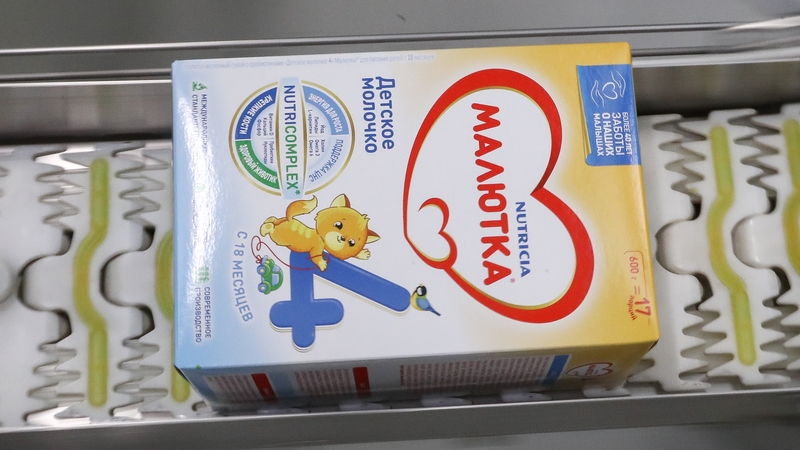French food group Danone delivered a stronger-than-expected 7.1% sales growth in the first quarter, reassuring investors its revival plan was on track and lifting its shares 4.7%.
Despite the robust start to the year, the maker of Activia yoghurt and Evian water kept its 2022 financial goals unchanged.
This comes amid a challenging environment marked by higher input costs and uncertainties linked to the war in Ukraine.
Danone's strongest like-for-like sales growth since the fourth quarter of 2014 was broad-based across geographies and the three businesses - dairy and plant-based products, infant formula and bottled water.
It reflected favourable year-ago comparables, price increases, stronger demand for China baby products formula, and a post-Covid improvement in demand for water consumed outside of the home.
Danone is the world's largest yoghurt maker.
It said its like-for-like sales rose to €6.236 billion in the first quarter, compared with expectations for a 5.5% rise in a company-compiled consensus of 19 analysts.
"We won't get too carried away over one good quarter, but this is a creditable start to its new 'Renew Danone' strategy," RBC Europe analysts said.
"Pricing is still the key growth driver. However, better than expected volumes is a good indication of Danone's pricing power and a change from its traditionally underwhelming volume performance," they added.
Overall volume growth was 2.2% in the quarter, beating expectations of 0.4% growth.
Danone's new chief Antoine de Saint-Affrique is conducting a revival plan amid mounting input costs, coupled with further uncertainties caused by Russia's invasion of Ukraine.
This has forced Danone to suspend investments in Russia.
On the negative side, Oddo analysts noted that volumes declined 1.8% in the quarter in the dairy and plant-based division, with supply challenges hurting Spain and the war in Ukraine hit volumes in Russia.
Danone expects a 2022 operating margin above 12% against 13.7% in 2021, with price-led like-for-like sales growth in a range of 3% to 5% against 3.4% in 2021.
This assumes the reinvestment of 100% of its Local First savings, productivity higher than last year and a mid-teens level of input cost inflation.
Saint-Affrique replaces Emmanuel Faber, who was abruptly ousted as chairman and CEO last year following clashes with some board members over strategy and calls from activist funds for him to resign over the group's lacklustre returns compared with some rivals.
